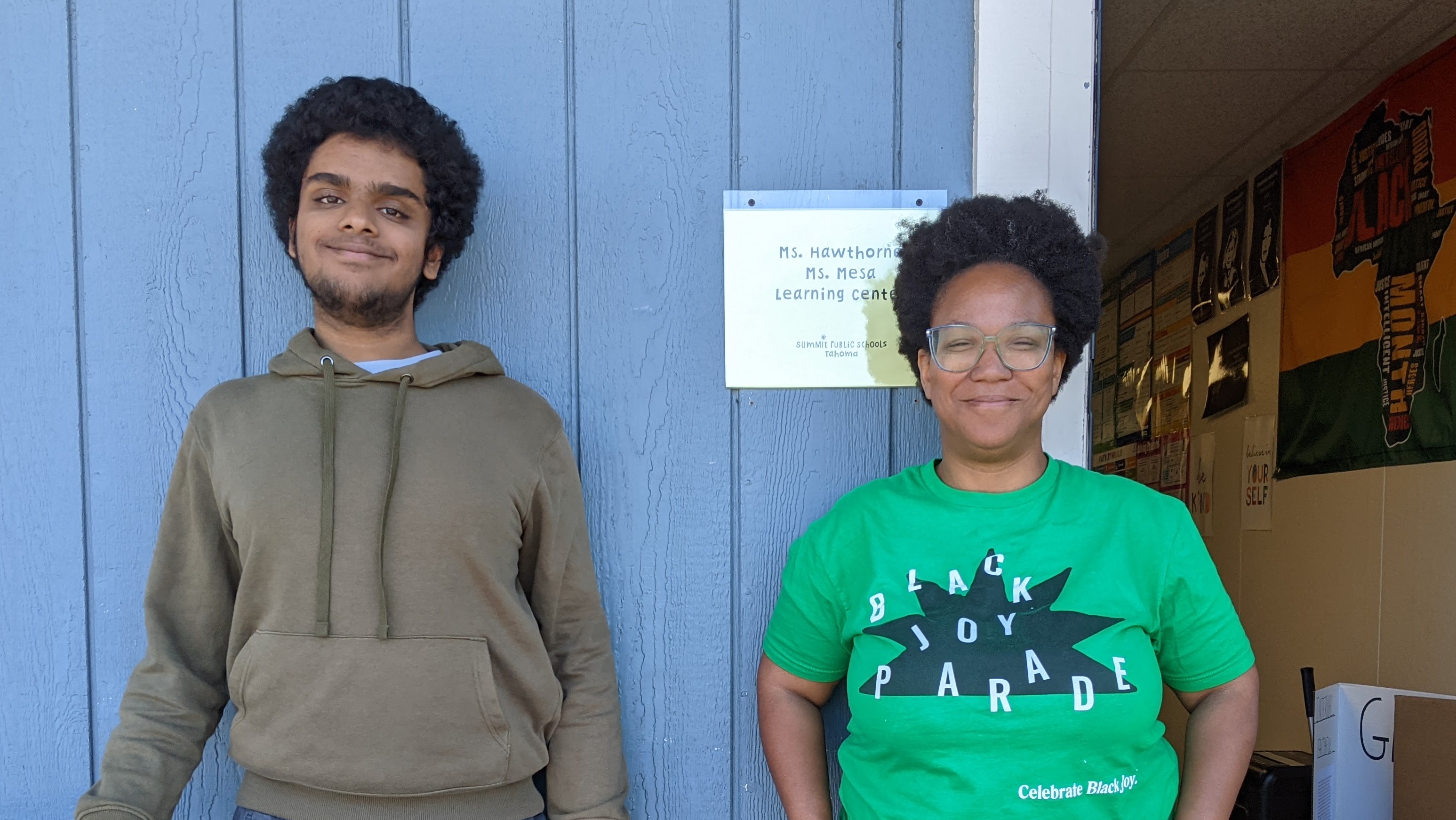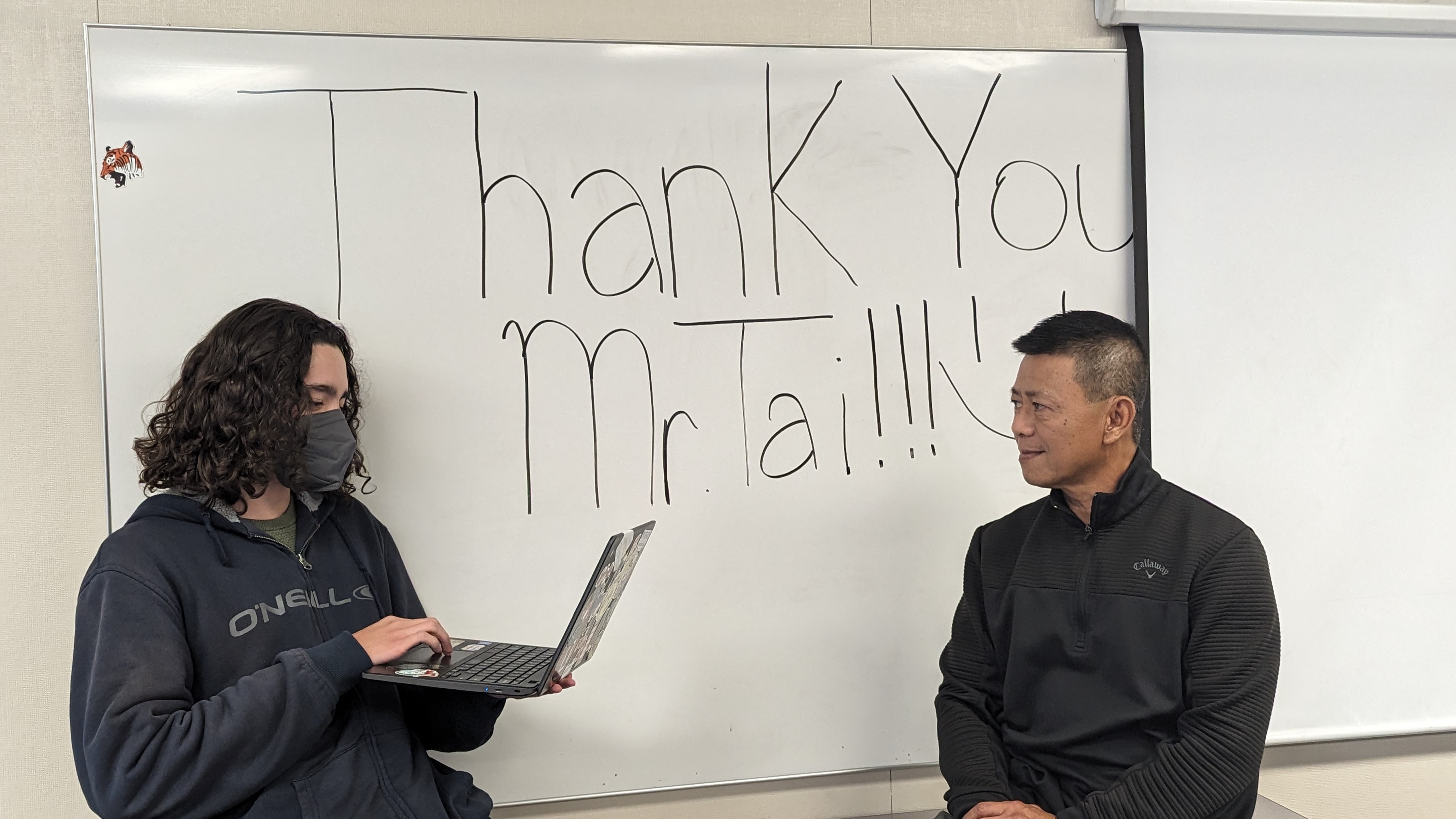April is Autism Awareness Month, so I wanted to write something about the role that IEP teachers play in supporting and helping disabled students, since I have had an IEP/504. I had a chance to sit down with one of the Learning Center teachers, Ms. Niya Hawthorne, and get her thoughts on being an IEP teacher at Summit Tahoma. Ms. Hawthorne has been an education specialist and teacher for 8 years and has spent 6 of those years at Summit Tahoma.
Question 1: What made you decide to be an IEP teacher?
In the past, I had the opportunity to work closely with disabled teenagers and adults for several years. After working as a teacher for two years, I was exploring opportunities where I could use my previous experience with disabled teenagers and combine it with teaching. So, I decided to join Tahoma as an IEP teacher.
It is my belief that a lot of times in our society, there are assumptions made of disabled people – that they can’t do certain things or that if they’re limited in some way, they are judged. But I believe that we all have skills and something we are good at.
Question 2: How do you help students to succeed in schoolwork?
All my students have various goals ranging from academic goals like reading, writing, and math to goals such as executive functioning and self-advocacy. I work with the students and help them meet their goals. My students also have goals that include transitioning to college or a workplace. I work with a company called “Bridges to Work '' that helps disabled people between the ages of 17 and 22 learn practical skills for jobs, like interviews, writing resumes, and so on.
Question 3: How do you help students transition from high school to university?
During the student’s senior year, we have a “Senior exit meeting,” where together, we come up with goals they want to reach and what their plans are after graduation. After high school, things will look different in the context of accommodations, and students need to advocate for themselves. So, I provide information on how they can get the support they need in college and their workplace. Some jobs and universities require a recent education report test that shows their cognitive skills in different areas, so I also provide a copy of that report to the students.
Question 4: How do you teach students to advocate for themselves in education, work, and outside?
I have a class every Wednesday where I work with students on social, emotional, and executive functioning skills. I also help students with self-advocacy and teach them to apply it to specific situations such as living with a roommate.
Question 5: What is it like being an IEP teacher?
It can be challenging as IEP involves two aspects: case management and working directly with students. They sometimes overlap, but it is challenging when they don’t. One example is when a student has reading and writing goals but also executive functioning goals. Then, I have to do the work of a case manager and help my students with project work at the same time. In such cases, it becomes difficult to stay on track in both aspects. But despite these challenges, I still enjoy supporting my students and watching them learn.
Question 6: What is something that, in your opinion, Summit Tahoma does well in being accessible to disabled students?
Tahoma has been very good at supporting IEP teachers and has provided all the resources we need. I also like how all students are able to get some of the accommodations and resources that my students receive. For example, if there is a presentation and my students don’t want to share it with the whole class, they can present it only to the teacher, and other students also have that option.
Question 7: What would you change about Summit Tahoma to make it more accessible to disabled students?
If the budget allows it, I would like it if there was one IEP teacher per grade, as currently, the IEP teachers support all grades. I also wish that we had some teachers’ aides who could help the students with their academic goals.
Question 8: Are there any extra words you would like to tell the readers?
I am passionate about teaching and love supporting students. Though the pay is low for what we do, it is very rewarding in several ways. If you want to become a teacher, don’t do it for the money; do it because it is your passion, and you care about it. It is an extremely fulfilling and rewarding job.
Takeaways
IEP teachers support disabled students through the challenging aspects of high school, as well as the transition to university or work. Their hard work supports students and ensures they have the resources for a successful and fulfilling life. Remember to appreciate your special education teachers!

 Stunning Total Solar Eclipse Makes Its Way Across the US
Stunning Total Solar Eclipse Makes Its Way Across the US